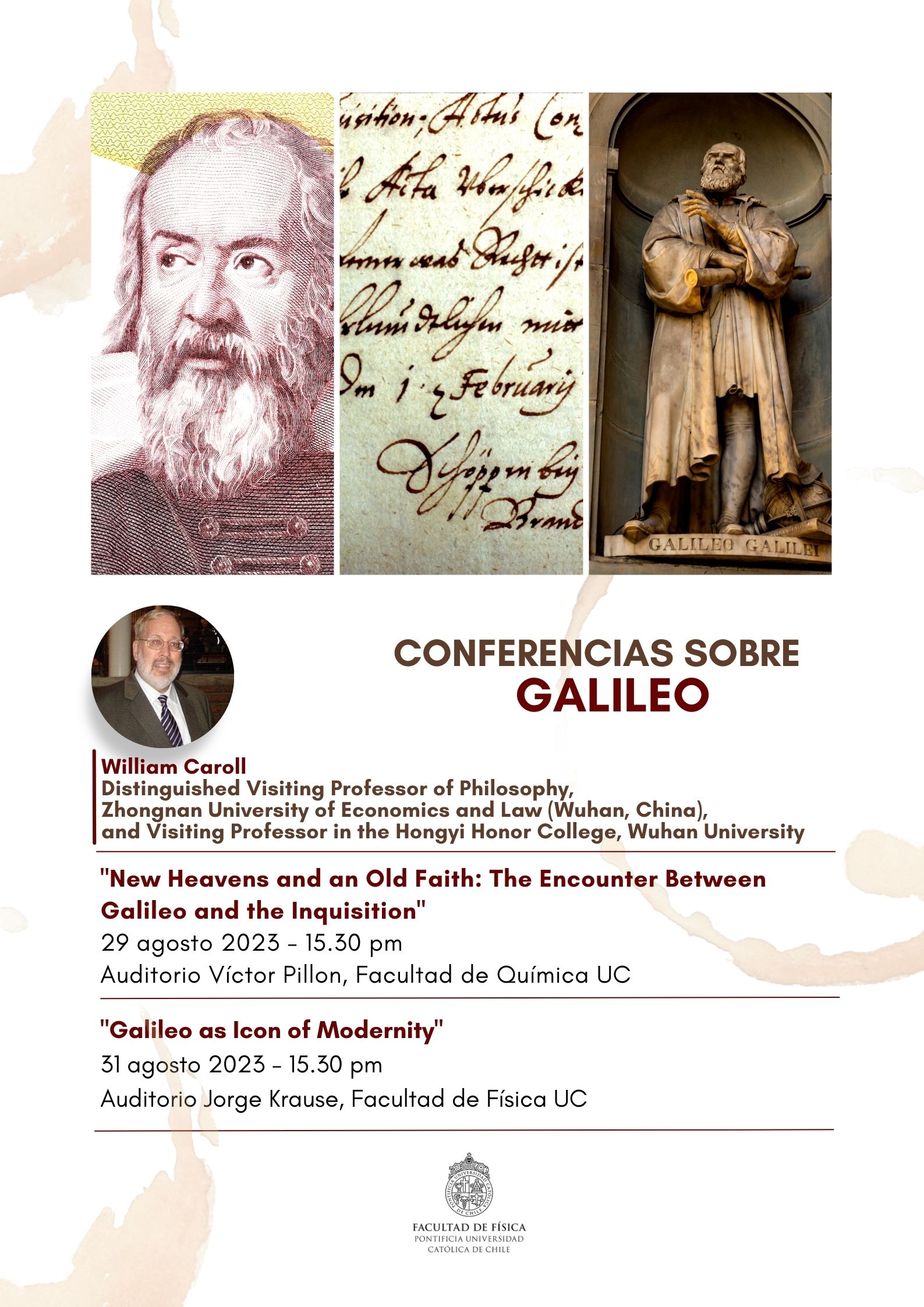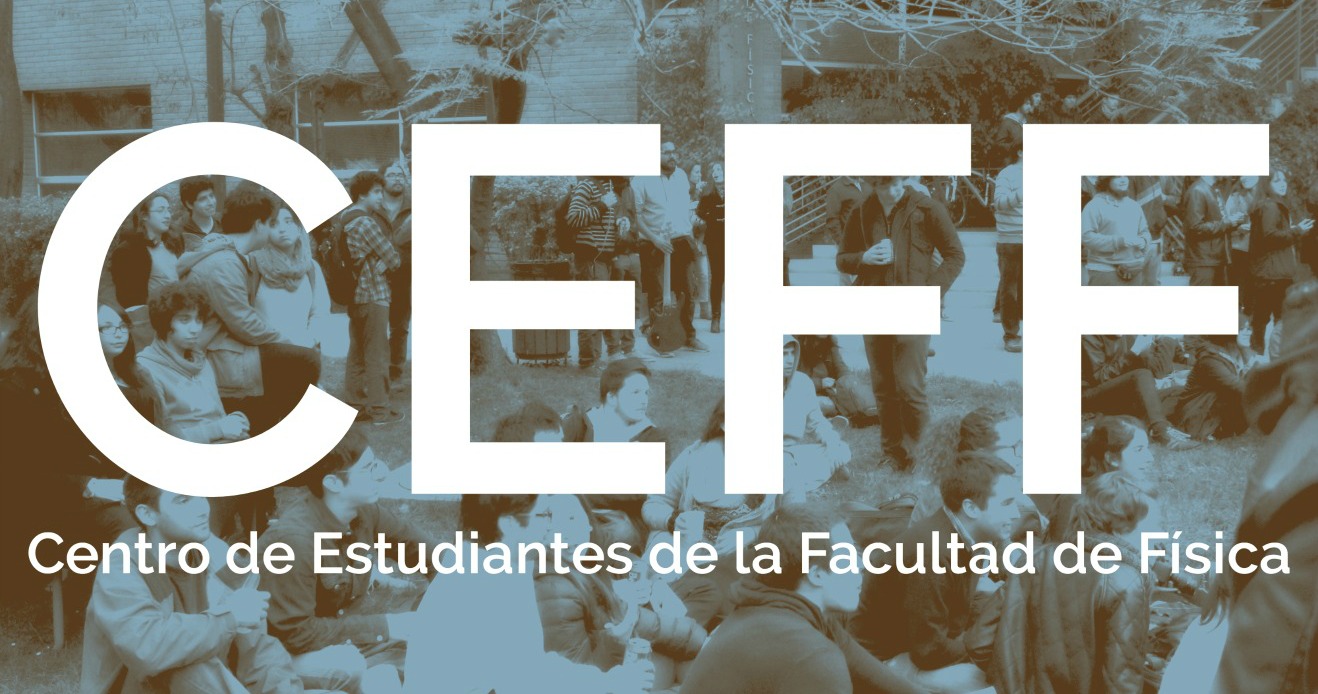Invitación a Conferencias Galileo este 29 y 31 de agosto de 2023
Invitamos a la comunidad de la Facultad de Física a participar de las charlas de William Carroll, que se realizarán los días 29 y 31 de agosto, a las 15.30 hrs en los auditorios Víctor Pillon de la Facultad de Química y Jorge Krause de la Facultad de Física respectivamente.
Galileo Galilei es una de las figuras más importantes de la ciencia. Él tuvo un rol clave en entender el movimiento de los cuerpos, además de grandes descubrimientos astronómicos. Él enfrentó a la Inquisición en un juicio que terminó el año 1633, y en donde fue declarado culpable, y sentenciado a presidio domiciliario hasta su muerte en 1642. Finalmente, en 1992 Galileo fue perdonado por el papa Juan Pablo II.
En estas conferencias, el profesor William Carroll, conferencista Profesor Visitante de Filosofía, de la Universidad de Economía y Derecho de Zhongnan (Wuhan, China) y Profesor Visitante en el Hongyi Honor College, Universidad de Wuhan (Wuhan, China), explicará en detalle en qué consistió el proceso de Galileo, cuáles fueron los cargos, qué tipo de decisiones son las que se tomaron y por qué.
Las conferencias serán dictadas en inglés, sin traducción simultánea.
Compartimos un resumen de cada una de las conferencias:
Lecture I: New Heavens and an Old Faith: The Encounter Between Galileo and the Inquisition
Galileo's telescopic discoveries and arguments about the nature of the heavens and the motions of the Earth became the occasion for wide-ranging discussions about the truth of traditional physics and cosmology as well as broader philosophical and theological implications. Notable in this respect were traditional interpretations of the Bible – and the authority of the Catholic Church as the authentic interpreter of the Bible. These topics become central to the encounter between Galileo and the Inquisition from the early nb1610's through the famous trial of Galileo in 1633.
Lecture II: Galileo as Icon of Modernity
The legends of Galileo's encounter with the Inquisition helped to form a master narrative of modernity according to which there is a fundamental conflict between science and religion, and that Galileo was instrumental in liberating science from both biblical literalism and ecclesiastical control. Galileo's role as harbinger of the modern world is reinforced by the view that he helped to show the falsity of science based on principles of Aristotelian physics. The power of these legends continues in the present day in debates about evolutionary biology and various topics in bioethics.







